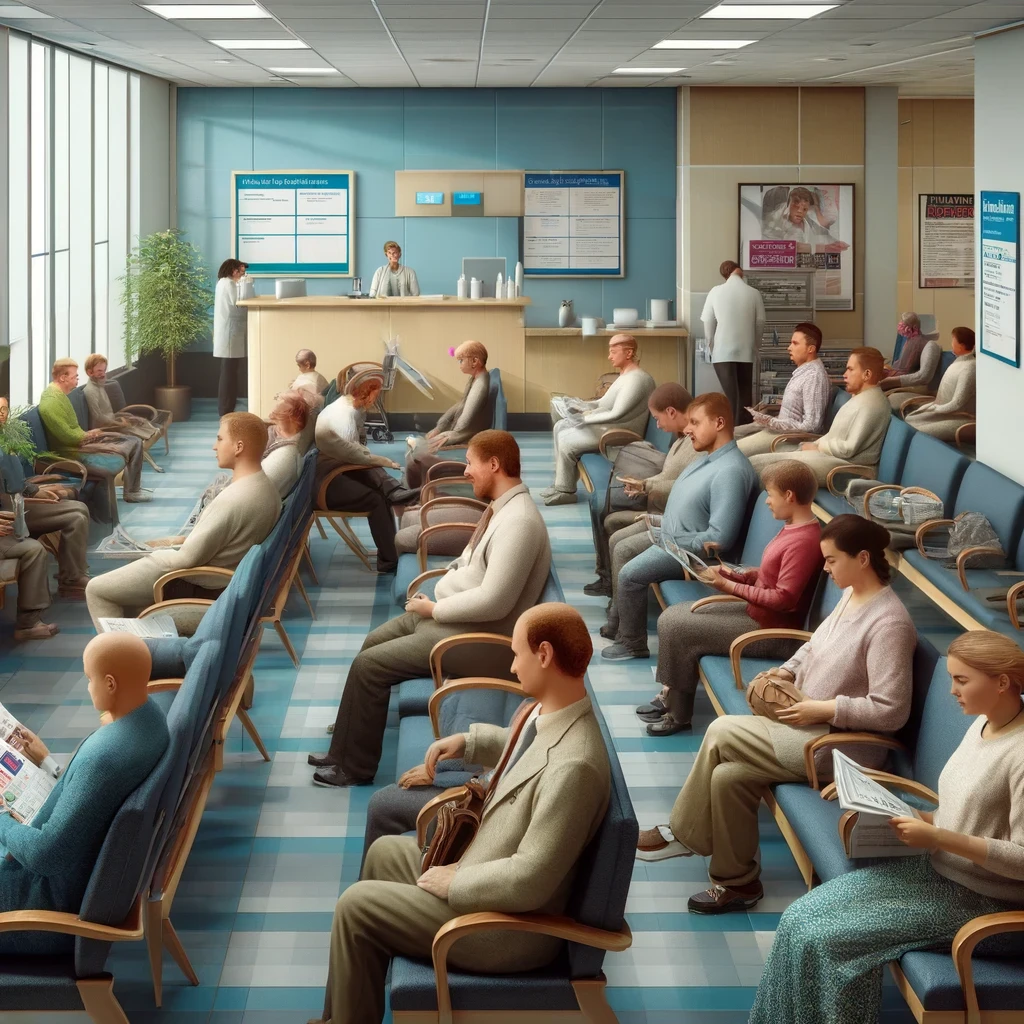Illustrating the Impact of Mindful Awareness
Imagine you're a nurse starting your day in a bustling hospital. Your mind is often pulled in a million different directions – thinking about the patients you need to see, the medications you need to administer, and the countless tasks awaiting you.
Now, let's introduce the concept of awareness into your routine. As you take a moment to pause and simply notice your ongoing thoughts, you start to become aware of your physiological state – the rise and fall of your chest, the rhythm of your breathing, the overall emotional state. Suddenly, you realize something remarkable: amidst the chaos, there's a stillness within you, a quiet space where you can anchor yourself in the present moment.
With this newfound awareness, you approach your interactions with patients and coworkers differently. Instead of rushing from one task to the next, you take a moment to truly see each patient – not just as a medical case, but as a human being with fears, hopes, and emotions. You listen to their concerns with undivided attention, offering them the gift of your presence and empathy. This not only applied to patients, but coworkers as well.

As you administer medications, you notice the subtle cues in your patients' body language – a wince of pain, a sigh of relief. Your heightened awareness allows you to respond with greater sensitivity and compassion, adjusting your approach to meet their needs more effectively.
In moments of stress or uncertainty, you turn inward, tapping into your awareness to ground yourself in the present. You notice the tension in your shoulders and the racing of your thoughts, but instead of getting swept away by them, you gently bring your focus back to your breath, finding refuge in the calm center within you.
Over time, this practice of awareness begins to permeate every aspect of your work. You find yourself approaching challenges with greater clarity and resilience, navigating the complexities of healthcare with a steady presence.
In this way, something as simple as awareness becomes a powerful tool for transformation – not just in your role as a healthcare professional, but in your life as a whole. It's a reminder that amidst the chaos and demands of the healthcare profession, there's always an opportunity to come back to yourself, to find peace in the midst of the storm, and to connect with others in a deeper, more meaningful way.
Understanding Mindful Awareness in Healthcare
In the fast-paced world of healthcare, where demands are high and resources often stretched thin, finding moments of calm amidst the chaos can feel impossible. Yet, amidst the flurry of patient care, administrative tasks, and ever-changing protocols, there lies a powerful tool that has the potential to transform the way we approach healthcare: mindful awareness.
As nurse managers, healthcare HR professionals, and executives, you're no stranger to the challenges of leading and navigating the complexities of the healthcare system. But what if I told you that cultivating mindfulness – specifically, the practice of mindful awareness – could not only enhance the well-being of your staff but also elevate the quality of care provided to patients?
Mindful awareness is more than just a buzzword; it's a powerful practice rooted in history and backed by modern science. At its core, mindful awareness involves paying deliberate attention to the present moment, with openness, curiosity, and acceptance. It's about cultivating a state of heightened awareness – of our thoughts, emotions, bodily sensations, and the world around us – without judgment or attachment. These are all soft skills that are important for a well functioning healthcare organization. As a clinical nurse leader or other healthcare professional, incorporating mindfulness into your daily routine can dramatically improve decision-making and patient interactions.
The Impact on Nursing Practice
For nurses on the frontlines of patient care, mindful awareness is not just a luxury; it's a necessity. By honing the ability to stay present and attentive, nurses can enhance their clinical skills, improve communication with patients and colleagues, and prevent burnout. Moreover, mindful nurses are better equipped to respond to the emotional needs of patients, fostering a therapeutic environment conducive to healing and recovery. Mindfulness enriches skilled nursing care by enabling nurses to be fully present during complex care procedures, thereby improving patient safety and treatment efficacy.
Benefits for Healthcare Leaders
How can mindful awareness benefit nurse managers, HR professionals, and healthcare executives? The answers are in the capacity to enhance decision-making, foster resilience, and promote a culture of well-being within your healthcare organization.
As a leader, practicing mindful awareness can help you navigate complex challenges with clarity and equanimity. It enables you to cultivate a deeper understanding of your own strengths and limitations, allowing you to lead with authenticity and compassion. Moreover, by prioritizing the well-being of your staff and modeling healthy behaviors, you can create a workplace culture that values self-care, collaboration, and continuous learning.
Integrating Mindfulness into Healthcare Organizations
So, how can you begin to integrate mindful awareness into your healthcare organization? It can start with education and training. Encourage the development of mindfulness skills through regular practice sessions or the use of mindfulness-based apps.
Consider incorporating mindfulness into existing programs or initiatives aimed at promoting staff well-being, such as employee assistance programs, resilience training, or peer support networks. By weaving mindfulness into the fabric of your organization, you can create a supportive environment where staff feel valued, empowered, and equipped to provide the best possible care to their patients.
A scientific study titled 'Metacognition and Mindfulness and its Relation to Head Nurses’ Decision Making Abilities' (El-Guindy et al., 2022) supports this approach:
"Metacognition and mindfulness are basic leadership capacities and significant factor in decision making for head nurses. It allows head nurses to be aware of the decision making process, know what factors may influence their decisions, and monitor, regulate, adjust and revise their decisions, even before obtaining feedback."
Here's what was recommended:
"Conduct periodic meetings between head nurses and their staff to allow them to express their feelings, seeking opinions, exchange their experiences during different situations and getting feedback and support."
At MindfulText, we recognize the challenges that many apps, programs, and workshops face, including low retention and completion rates, along with a lack of proven efficacy. To address these issues, have have developed a technology, platform, and behavioral program with retention and completion rates that range from 70%-100% while average apps see only 3%. We are also actively participating in research studies to imbue our methodology with scientific rigor, enhancing the effectiveness of our microlearning mindfulness techniques. Specifically, by incorporating mindfulness training into nursing education programs, we aim to equip future nurses with the essential emotional and cognitive skills needed to thrive in modern healthcare environments.
Embracing Mindful Awareness for a Brighter Future in Healthcare
In conclusion, mindful awareness has the power to revolutionize healthcare – from the bedside to the boardroom. By cultivating a culture of mindfulness within your organization, you can empower your staff to thrive amidst the challenges of the healthcare environment, while also enhancing the quality of care provided to patients.
As nurse managers, healthcare HR professionals, and executives, you have the opportunity to lead by example and champion the integration of mindfulness into every aspect of your organization. Together, let's embrace the transformative potential of mindful awareness and usher in a new era of compassion, resilience, and well-being in healthcare.

